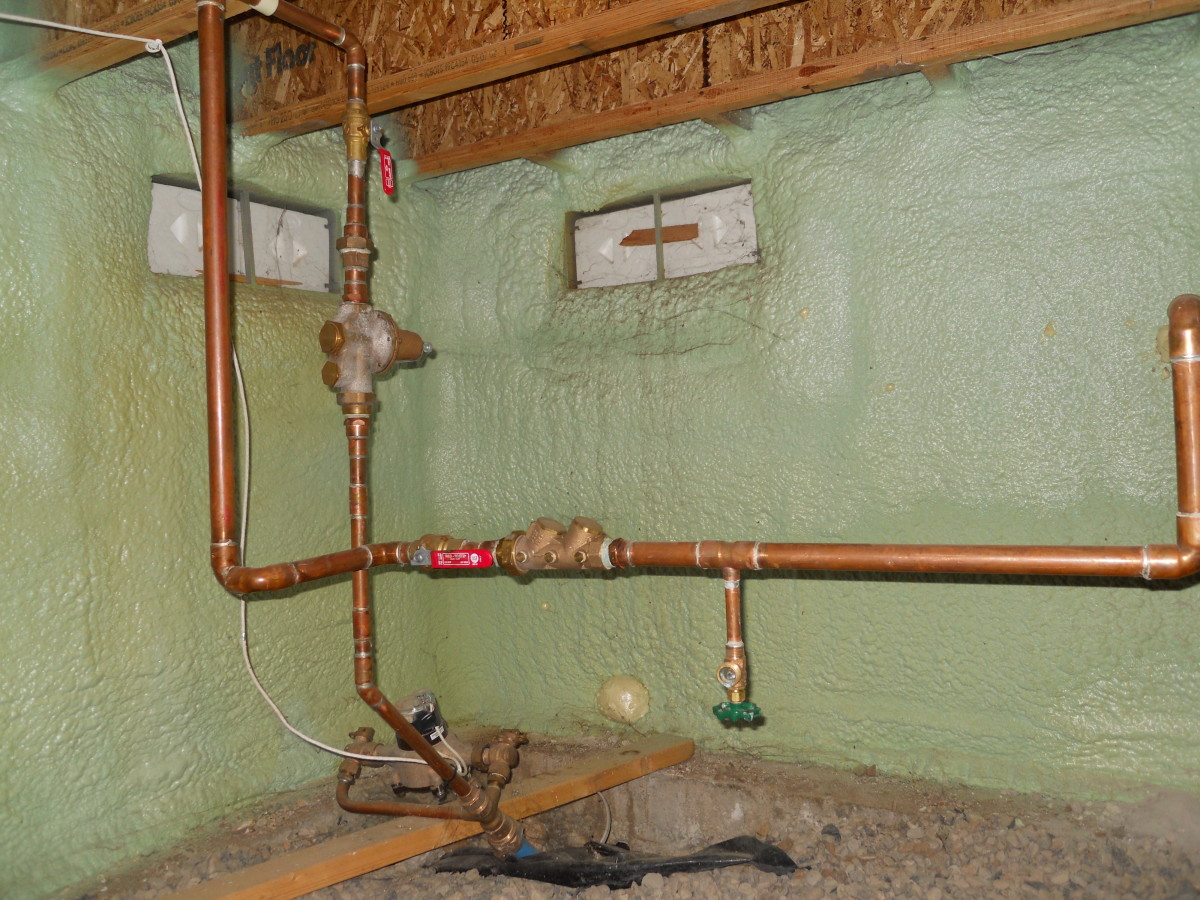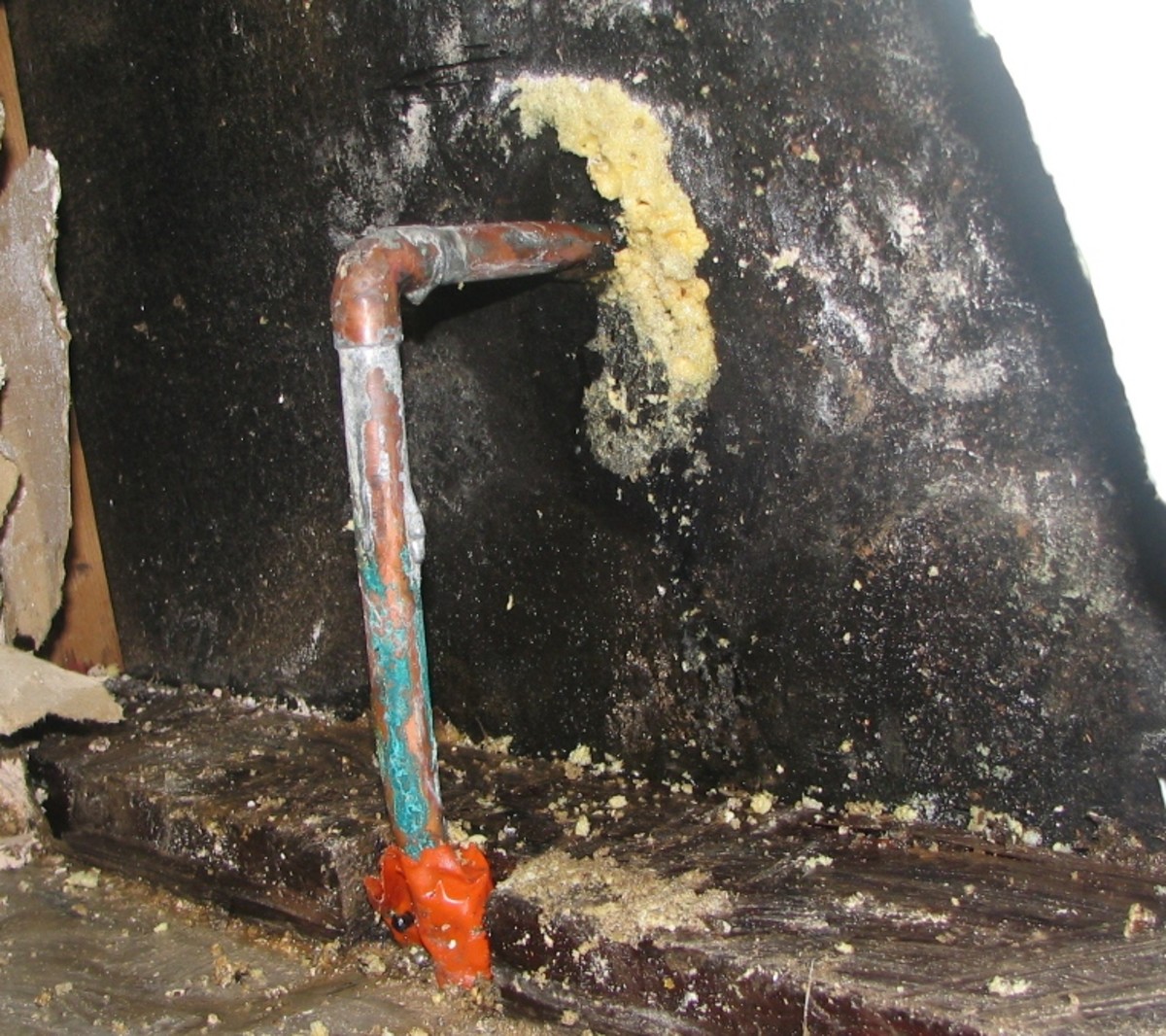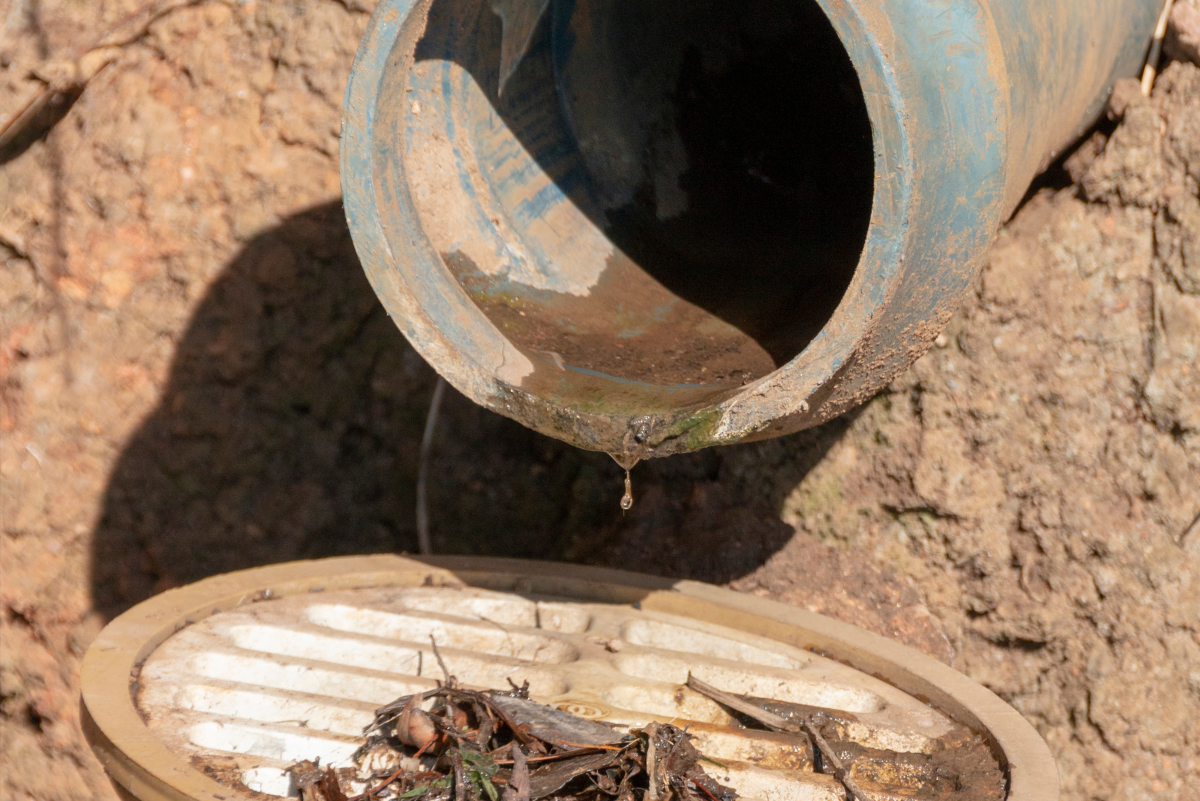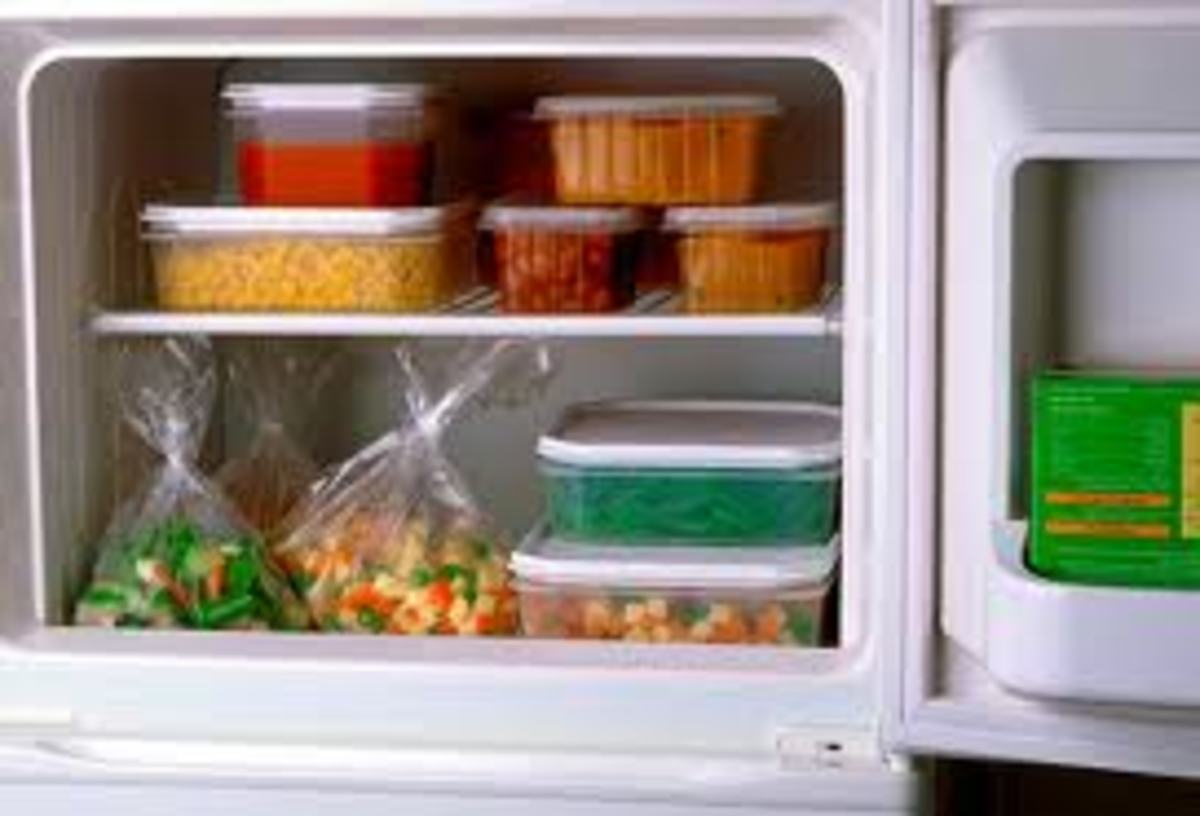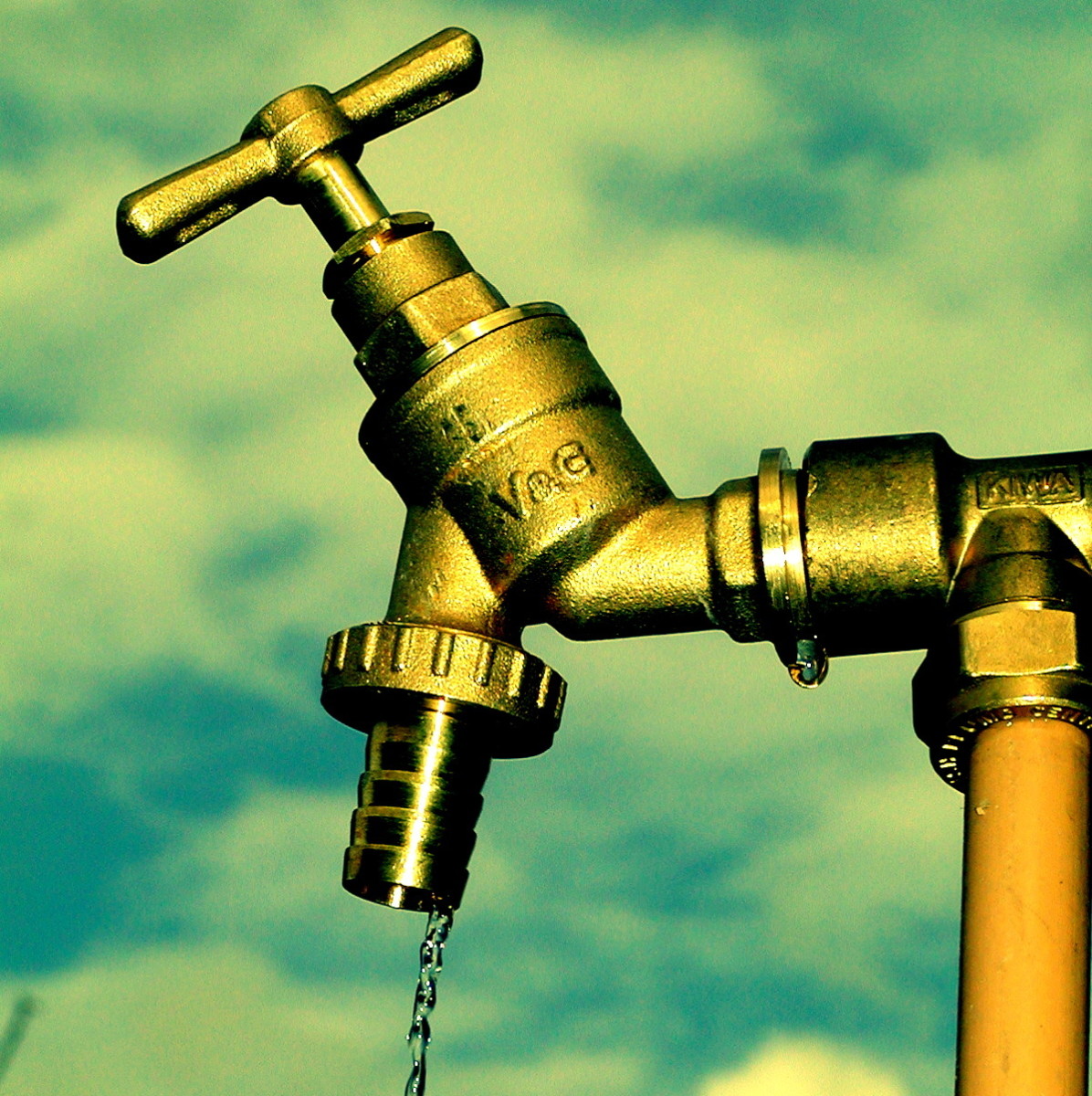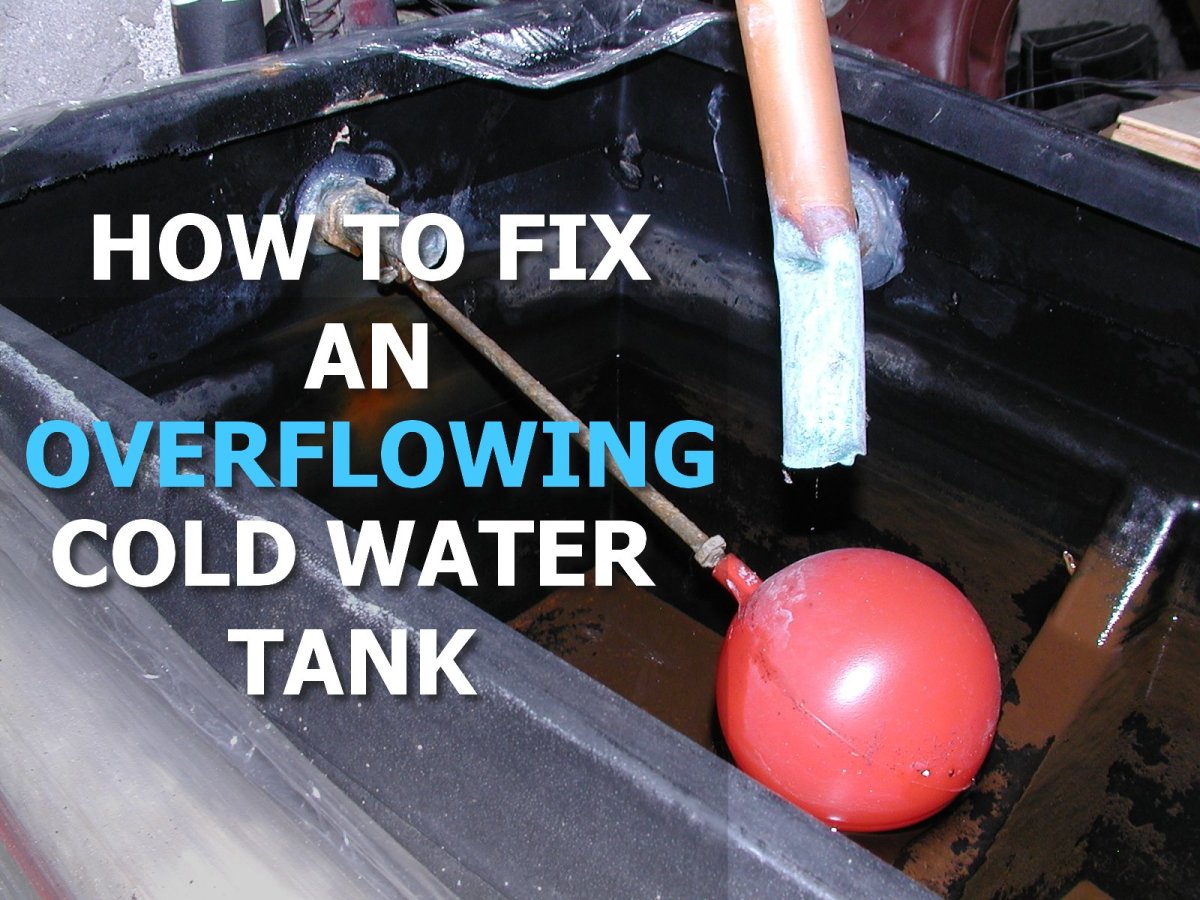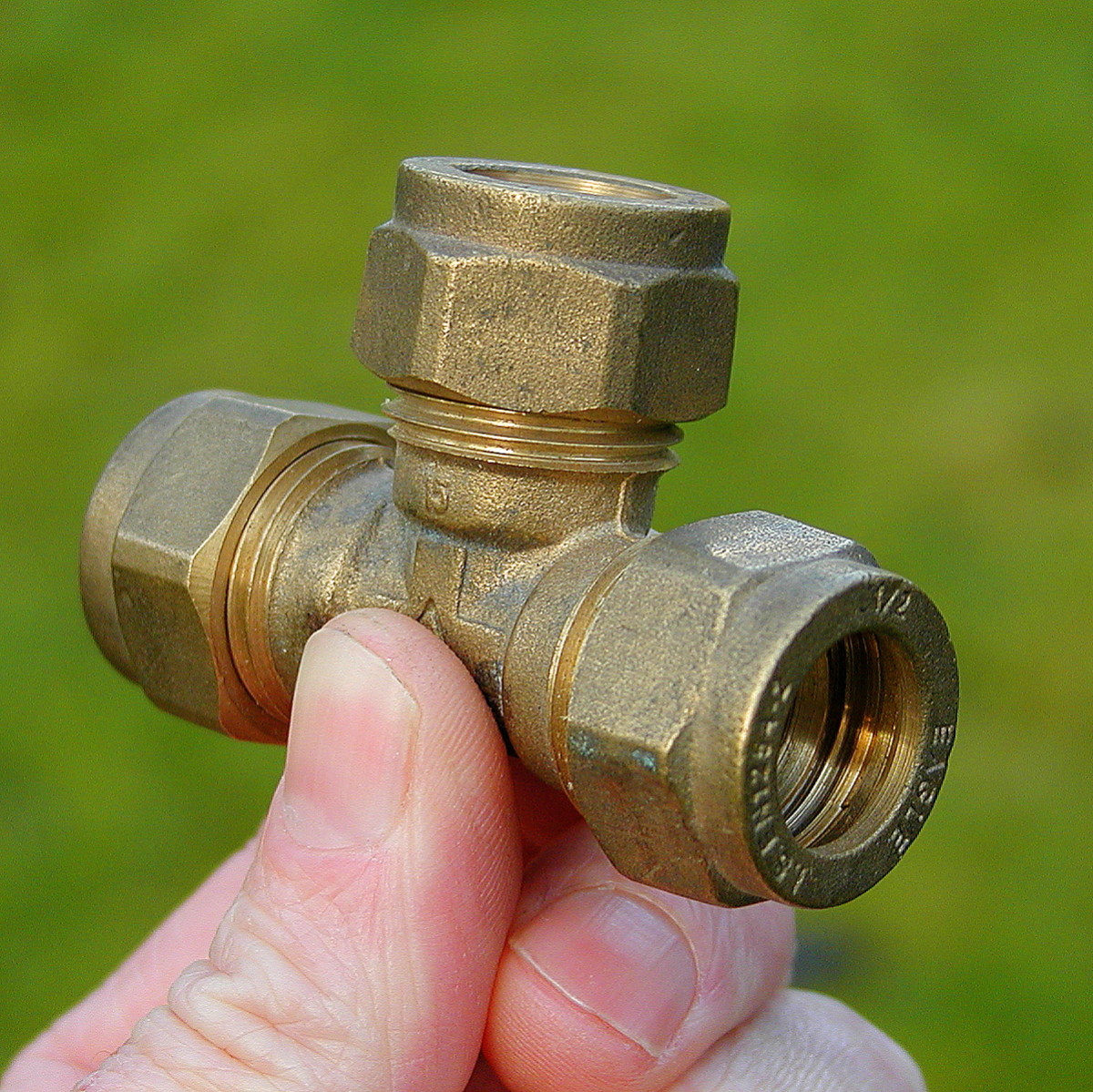The Most Cost Effective Way to Preventing Water Pipes from Freezing in Winter When You Build Your House
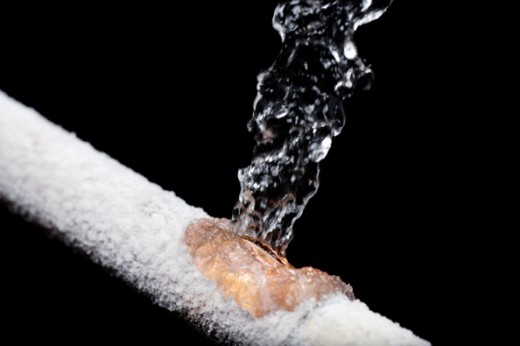
Winterizing Your Plumbing
With the cold weather and freeze warnings this year, its important to “winter-ize” your plumbing to make sure that it can handle the temperature changes and freezing conditions outside. As we all learned in elementary school, water freezes at 32°F, so when the temperature drops down to this, or below, then the water inside of your plumbing can freeze. It is important to not let it freeze, because as the water inside freezes, it expands, and causes the pipe to burst. Pipes that have water running through them constantly are less prone to freezing, except in extremely cold situations. Here, you will be given tips on how to prevent your pipes from freezing, what to do if they freeze, and other useful tips and info. If you do have a pipe that freezes, and bursts, make sure to turn off all the water to the pipe so it will stop leaking, and call your local plumber to come and replace the piping.

Frozen Pipes:
If you turn on the knob to your water on a cold day, and all you get is nothing, then you possibly have a frozen pipe. Even if the pipe is frozen, it is still possible to warm the pipe before it bursts if you catch it soon enough. Allowing the water to trickle from outside faucets is one of the more effective ways to keep your pipes from freezing, although not the most conservative or cost efficient. Using small space heaters for exposed pipes also works quite well, especially for applications inside of workshops or sheds that don’t have a heating system. Wrapping exposed pipes in newspapers, insulating foam, heating wires, or buying covers for exposed faucets are all also effective ways to prevent any outside pipes from bursting.
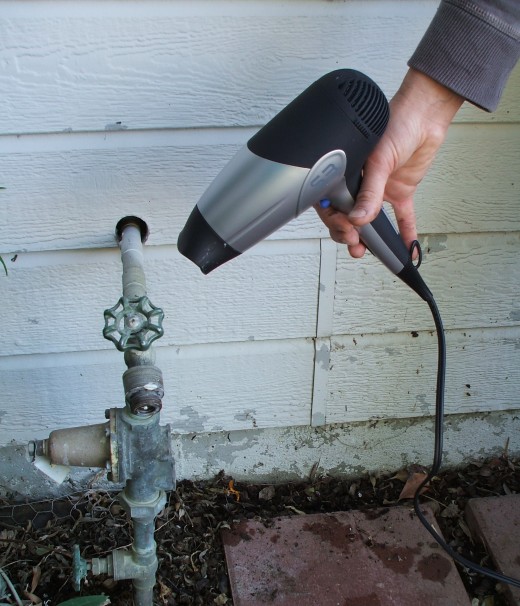
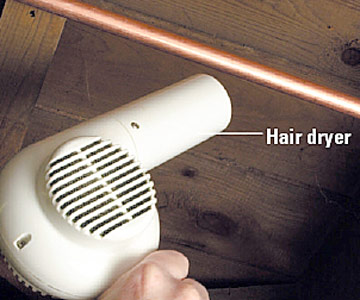
Thawing a Frozen Pipe
If you do discover that you have a frozen pipe, immediately shut off the water at the main valve. Open the faucet closet to the frozen spot so that is can drain. If indoors, waterproofing the area should be done in case of leaks. On metal pipes, use a small propane torch with a flame spreading nozzle, and warm the pipe slowly and evenly. This should melt all the ice inside and allow the water to flow. You don’t want to burn through the pipe, just heat it up. Shield flammable items (such as any insulation) with flame resistant material to prevent it from being set on fire. If no other method is available, wrap the pipe with rags and pour extremely hot/boiling water over it, and this should heat up the pipe. This method is not recommended for plastic PVC piping. If you don’t have a torch, or have plastic PVC piping that is frozen, a hair dryer set on high will generally work well, but wont be very quick. Heating pads and heating lamps will also work on both metal and plastic PVC, but like the hair dryer, are slow.
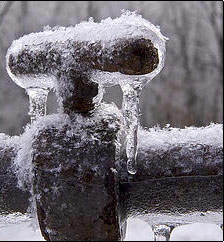
To Completely Winterize Your System
If you are leaving during the winter months of the year, or you own a house or property that is vacant, and want to completely winterize your plumbing system, then this is for you. Turn off the water at the main valve so that water is no longer coming into your home. Open all the faucets, starting at the top floor, and work your way down, inside and out. When all the water has drained out of the system, open the plug at the water main. Turn off the power and/or gas to your water heater (unless you have a inline water heater system), and pull the plug to drain. Remember to empty and drain all toilet bowls and tanks as well. Drain all sink traps, and remove if necessary. Replace and fill with plumbing antifreeze (check the bottle for usage instructions). Make sure to add at least a quart of antifreeze mixture to your bathtub and any other inaccessible drain, so that the water in those traps doesn’t freeze as well. Do not use antifreeze in dishwashers or clothes washers. Basement floor drains and main house lines all should use maximum strength antifreeze applications.
Some Helpful Links
- How to Stop a Squeak-y Pipe Behind a Wall, and Other Plumbing Tips
Knowing how to do simple plumbing things in the short run can help save you money in the long run, by fixing small problems before they become major issues. Always call a reputable plumber when things get too much to handle. - How Does a Toilet Work?
Everyone knows what a toilet looks like, what it is, and what its used for. But do you know how a toilet works? Where they came from? - How does a Septic and Sewer System Work?
You already learned how a toilet works, but now what about where it goes and what happens to our waste water? What are Septic systems and water treatment systems? Learn this and more! - Plumbing 101
Plumbing is one of the things that most people don't think about, until there is a problem. knowing your enemy is half the battle, so get to know your plumbing system, and learn a few things you might not have known. - AJ's Plumbing Inc
AJ's plumbing, our Santa Rosa Beach and Destin Plumbers has continually served South Walton County and surrounding areas with excellence and gratitude. Call us now! (850) 231-1473

